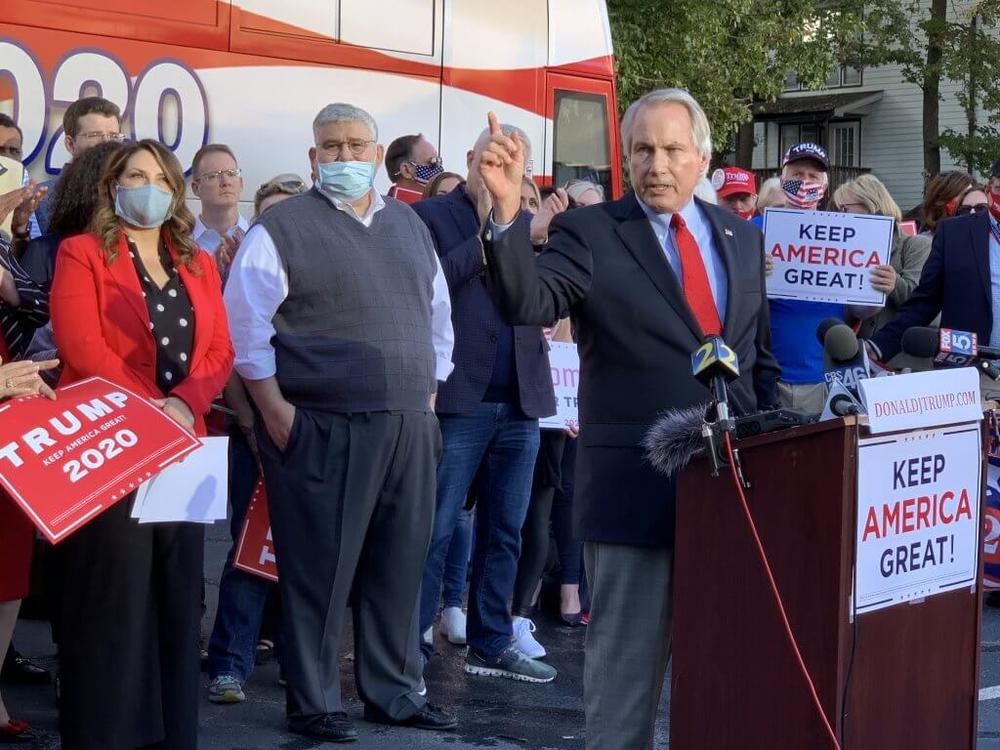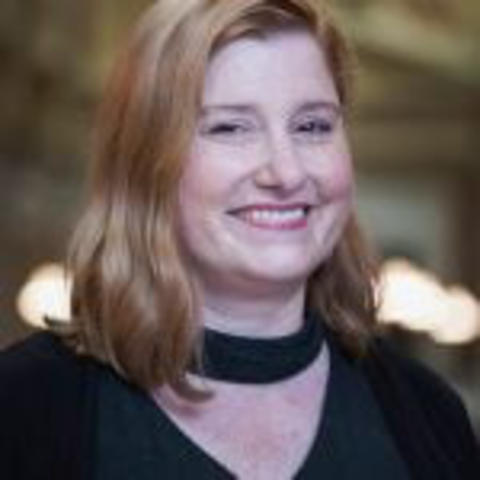
Caption
David Shafer (in vest sweater), the chairman of the Georgia Republican Party, was one of Georgia’s 16 false electors who attempted to certify the state in favor of former President Donald Trump. Shafer stood behind Trump supporter L. Lin Wood at a December 2020 Georgia rally.
Credit: Jill Nolin/Georgia Recorder

